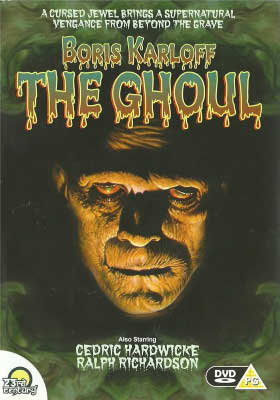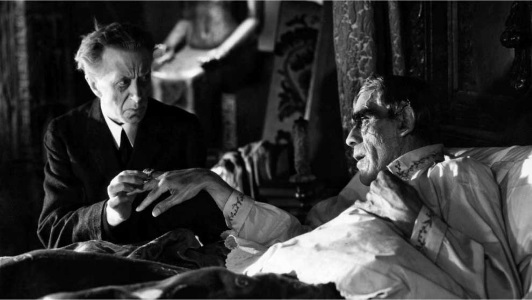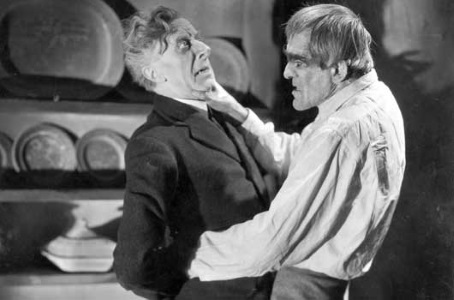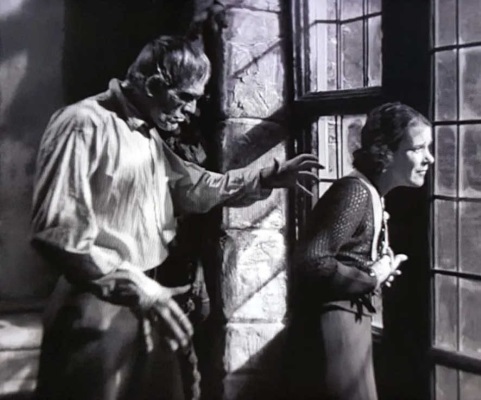The Ghoul

Director: T. Hayes
Hunter
Year: 1933
Rating: 6.0
I admit to having a weakness for the creaky creepy
old house horror films of the early 1930s. With darkness, candlelight,
shadows and things that move in the night, they create atmospheres that can
send a chill up my leg. Universal with cinematic borrowings from Europe were
the best at this and of course they had Karloff and Lugosi to stir things
up. The Ghoul certainly has a look that fits right in with the Universal
films, but it was in fact produced in England with Gaumont. It is a bit of
a rarity in that England became very strict about showing horror, but somehow
this snuck in before the clampdown. In this same year, the British censors
began applying an 'H" as a rating for films with horrific content. Much of
this was aimed at the American horror films that were coming in but also
effected British films. This film was thought to be lost for decades and
then a copy was found that deleted some of the more violent scenes - perhaps
the version that English audiences were allowed to see - but later an intact
print was discovered and it has recently made it to Blu-ray. Unfortunately,
I only saw a copy from YouTube which added to the general murkiness of the
film.

Also, in common with Universal is that it
stars Karloff as the Ghoul. He had turned down The Invisible Man and went
to his home country to take a holiday and was persuaded to appear in this.
He has practically no dialogue and is missing from much of the middle of
the film - so it was likely an easy gig. His scenes are few but effective
and there are some wonderful shots of him in the dark looking mad, horrible
and murderous. The director is American T. Hayes Hunter with no other films
of note though the Edgar Wallace White Face the Fiend (1932) sounds inviting.
But his cinematographer Günther Krampf had a much more impressive filmography
at the time with The Hands of Orlac, Pandora's Box and Rome Express. The
filmmakers manage to corral four classic British actors which gives the film
a nice touch looking back.

Professor Morlant (Karloff) is on his death
bed after years of being an Egyptologist, discovering tombs and becoming
an adherent of their religion. He has acquired the Eternal Light, a jewel
that he thinks will give him eternal life thanks to Anubis. He tells his
servant Laing (Ernest Thesiger) to tie the jewel to his hand and put the
key to his burial chamber on the inside - for when he returns on the first
full moon. Laing not surprisingly doesn't believe any of this hocus pocus
and steals the jewel after Morlant is dead. Oops. A few others show up at
the mansion - Morlant's two heirs, his lawyer (Cedric Hardwicke) and a mysterious
parson (Ralph Richardson in his debut). A few of them are after the jewel
that is worth a lot of money. The female romantic interest says "What a wonderful
night. It's a full moon". The sarcophagus begins to open. By no means a great
film - a bit too slow and in the end it turns as much into a crime film as
a horror one. Karloff in his make-up though is truly horrific - with eyebrows
so thick that he could have hid the jewel in them. 77 minutes.





